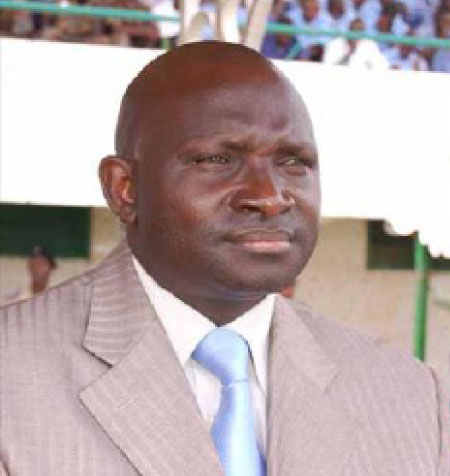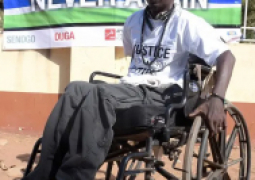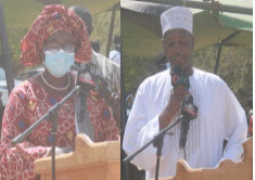
In January 2017, Sonko was arrested in a Swiss asylum centre and has been in jail ever since. The case was referred to Swiss authorities by Geneva-based NGO, TRIAL International. Under the principle of "universal jurisdiction", crimes against humanity can be tried even if the accused is not a national of the country he’s arrested in. Hence the Office of the Federal Prosecution in Switzerland acted swiftly to launch an investigation into crimes of extrajudicial killings, disappearances, torture and rape under former Gambian dictator Yahya Jammeh, and bearing responsibility for Sonko’s failure to prevent them as Minister.
Under the Swiss legal system, the investigation process is usually thorough and long, while trials are shorter. This resulted to Sonko’s seven year detention by Swiss authorities while investigators gather evidence, interview witnesses both in The Gambia and outside, to enable them prepare a formal indictment for prosecutions. During this period, Swiss investigators from the Federal Office of Police, and the Office of the Attorney General (OAG) travelled to Gambia several times in the framework of mutual judicial cooperation. Several other witnesses were invited to Switzerland to testify and give evidence against Sonko.
Meanwhile, the trial that started last week, so far, has heard the testimonies of several witnesses from The Gambia. On Day 1 of the trial last week Monday, indictments were read out to the defendant Ousman Sonko, as the trial formally opens with series of official statements that also gave opportunity for Sonko to react to those indictments. His lawyer raised objections to new charges, which the prosecutors say, were based on new information. It is worth noting that several other plaintiffs also brought charges against Sonko in addition to the Prosecutor’s indictments. Sonko’s lawyer objected to these in a session that saw the back-and-forth arguments all day. The court subsequently took a decision on the morning of Day 2 (Tuesday), dismissing Sonko’s objections and opening way for the prosecutions to proceed.
In the afternoon of Day 2, Sonko was questioned on his personal information such as dates and place of birth, residence, education, children, etc. Following these, the prosecution’s strategy was to categorise the case into killings, murders, sexual violence such as rape; torture allegations following March 2006 alleged coup emanating from several witness’ testimonies and evidence. Also, was the matter of 2016 killing of Solo Sandeng, the torture of opposition activists, and the killing of former majority leader Baba Jobe.
Sonko meanwhile, did not take responsibility for the crimes of tortures and killings that he is alleged to have either supervised or had knowledge of. According to prosecutors, Sonko bears responsibility as Minister in charge of the security forces and had power to stop these acts of torture, especially the case of the execution of Mile 2 death row inmates, and chose to ignore its conduct or allegedly approved of it. Sonko denied knowledge of crimes committed in the prison and instead blamed all on David Colley, who was director of Prisons under his ministry. To prove their case, prosecution invited two officials of the Gambia Prison Services who both testified against Sonko as either knowing, instructing for these acts, or sometimes supervising them himself.
In the case of Almamo Manneh, Sonko had said he would exercise his right to remain silent. But he had earlier agreed to answer questions about this killing to the court, when questioned about them during investigations. He told the court that he is bound by Official Secrets Act of The Gambia, and will not speak on the matter of Almamo Manneh. Lawyers for plaintiffs and prosecutors found this statement baffling, and indicative of Sonko sitting on tons of secrets he knew would incriminate him once revealed. Notwithstanding, the court respected his right to exercise silence over the matter.
A former Army captain of the Gambia Armed Forces also testified that he was tortured and forced to write a statement that he had to read on TV as purportedly a” prepared announcement” once the alleged 2006 coup plot succeeded. However, the witness maintained there was no statement prepared for the fateful March 2006 alleged coup as told to the Gambian public. Similarly, two National Assembly Members also testified they were tortured to give statement about their alleged involvement in the 2006 coup, but maintained their innocence of this alleged coup.
Meanwhile, Alhagie Martin, Tumbul Tamba and Musa Jammeh were identified as the torturers while a panel that was tasked to investigate them, received confessions after tortures. Those panel members were identified as Ousman Sonko, Momodou Hydara and Lang Tombong Tamba, among others.
The case continues.





